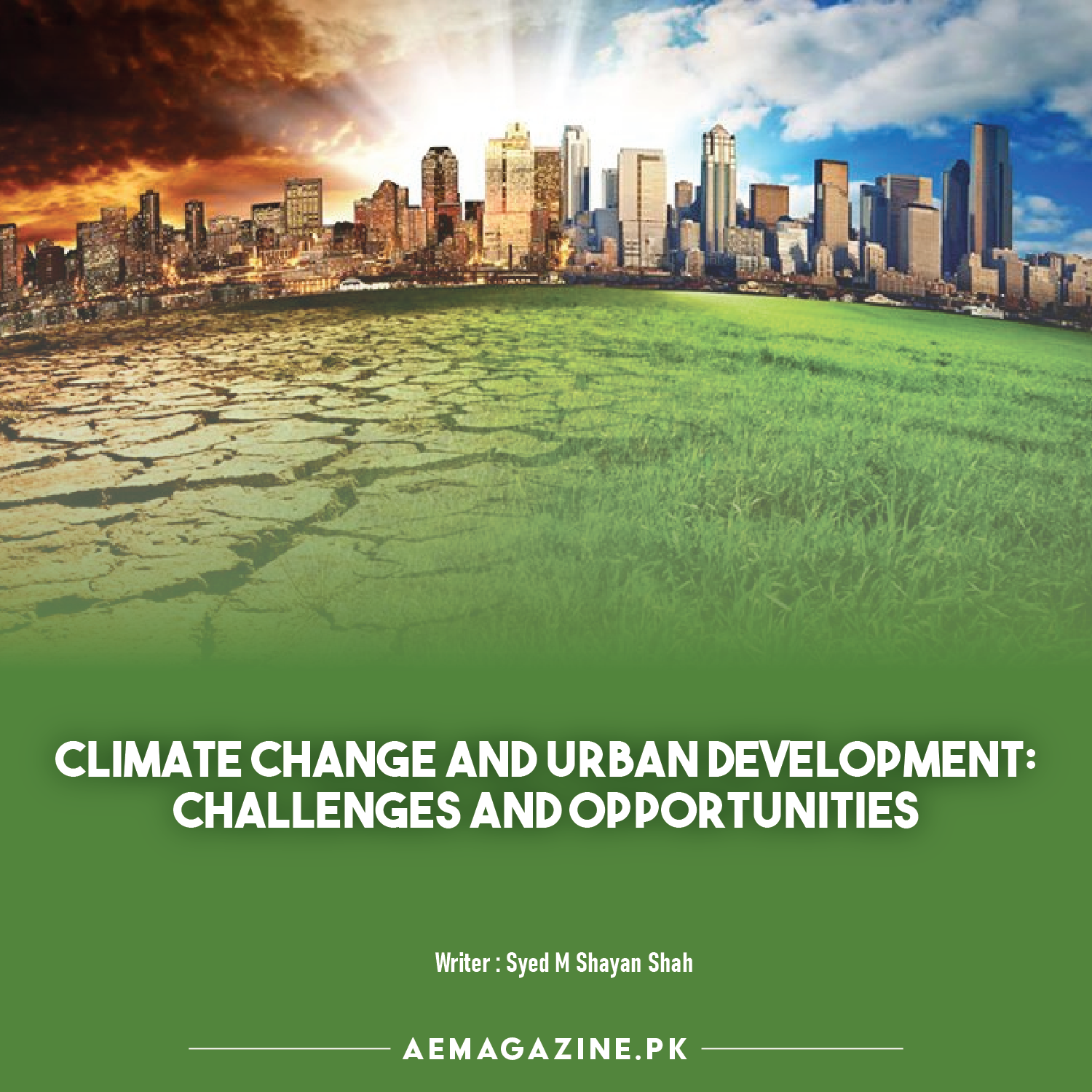
Article by
Cities are dealing with a rising number of climate change-related concerns as the world continues to urbanise quickly. Urbanisation and climate change are closely related because cities contribute significantly to greenhouse gas emissions and are particularly vulnerable to the effects of climate change. But there are also chances for cities to lead the way in reducing and adjusting to climate change.
Global Warming and Urbanisation
Given that cities produce 70% of the world’s greenhouse gas emissions, urbanisation is a major contributor to climate change. Urban areas are hubs of commerce, transportation, and consumption, all of which add to the production of greenhouse gasses. Cities also consume a lot of energy for transportation, lighting, heating, and cooling, which contributes to emission.
Furthermore, urbanization can exacerbate the impacts of climate change. Urban areas are often located in low-lying coastal areas, which are particularly vulnerable to sea level rise and flooding. Additionally, urban areas can experience higher temperatures due to the urban heat island effect, which can lead to increased energy consumption for cooling and health risks for vulnerable populations.
Challenges For Cities
Climate change presents significant challenges for cities, including the need to reduce greenhouse gas emissions, adapt to changing climatic conditions, and manage the risks of climate-related hazards.
Reducing greenhouse gas emissions is essential to mitigating the impacts of climate change. Cities can take a range of actions to reduce emissions, including increasing the use of renewable energy, promoting energy efficiency in buildings, encouraging low-carbon transportation options, and reducing waste. However, reducing emissions requires significant investments in infrastructure and changes in behavior, which can be challenging for cities with limited resources and competing priorities.
Adapting to changing climatic conditions is also essential for cities to manage the risks of climate change. This can include measures such as improving drainage systems to manage flooding, building sea walls to protect against sea level rise, and increasing green spaces to mitigate the urban heat island effect. However, adapting to climate change can also be challenging for cities, particularly those with limited resources or those located in areas with high exposure to climate-related hazards.
Opportunities for Cities
Despite the challenges presented by climate change, there are also opportunities for cities to take a leadership role in addressing climate change. Cities can leverage their economic power, political influence, and innovation capacity to drive the transition to a low-carbon and climate-resilient future.
One opportunity is to promote the use of renewable energy. Cities can set ambitious targets for renewable energy use and implement policies to encourage the development of renewable energy infrastructure, such as solar panels and wind turbines. This can not only reduce greenhouse gas emissions but also create new economic opportunities and jobs.
Another opportunity is to promote sustainable transportation options. Cities can encourage the use of public transportation, walking, and cycling, which can reduce emissions and improve air quality. Cities can also invest in electric vehicle infrastructure and promote the use of shared mobility options, such as car-sharing and bike-sharing.
Finally, cities can invest in green infrastructure, such as green roofs, parks, and urban forests, which can help to mitigate the urban heat island effect and reduce the risk of flooding. Green infrastructure can also provide a range of other benefits, such as improving air and water quality, enhancing biodiversity, and improving quality of life for residents. Climate change and urbanization are two of the biggest challenges facing the world today. However, there are also opportunities for cities to take a leadership role in addressing these challenges. By reducing greenhouse gas emissions, adapting to changing climatic conditions, and promoting sustainable and resilient development, cities can help to create a more sustainable and livable future for all.
 Monthly "Azeem English Magazine", launched in 2000, records the information about diverse fields like mental health, literature, research, science, and art. The magazine's objective is to impart social, cultural, and literary values to society.
Monthly "Azeem English Magazine", launched in 2000, records the information about diverse fields like mental health, literature, research, science, and art. The magazine's objective is to impart social, cultural, and literary values to society.
+92 51 88 93 092
First Floor, RAS Arcade, Eidhi Market, Street#124, G-13/4, Islamabad, Pakistan, 44000.